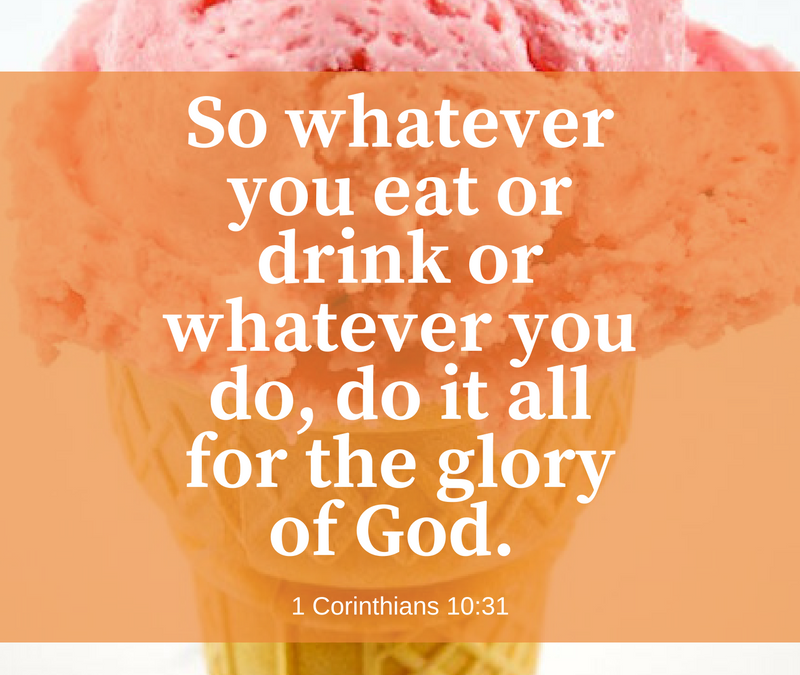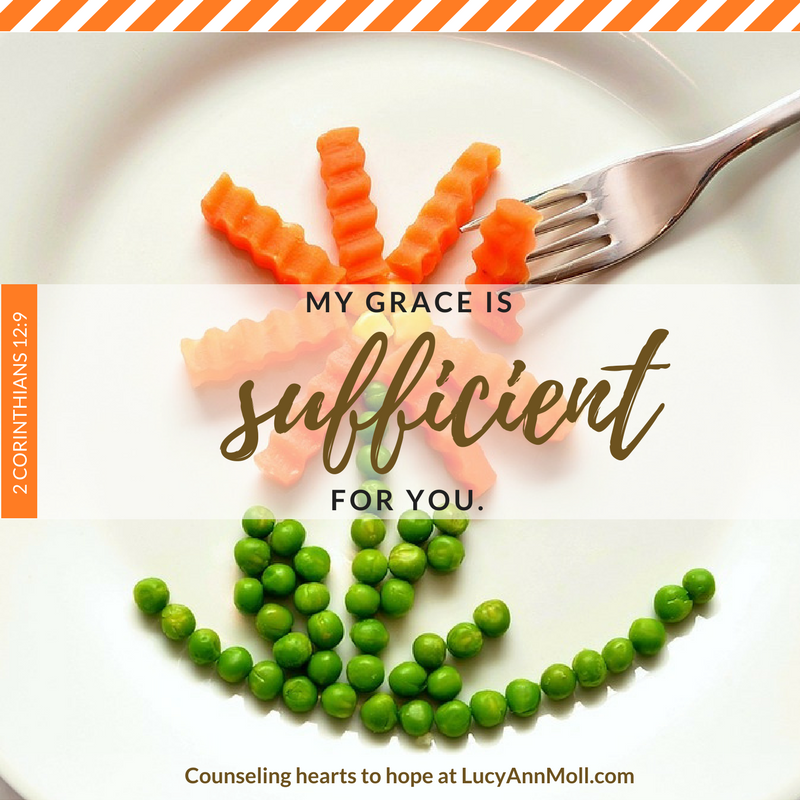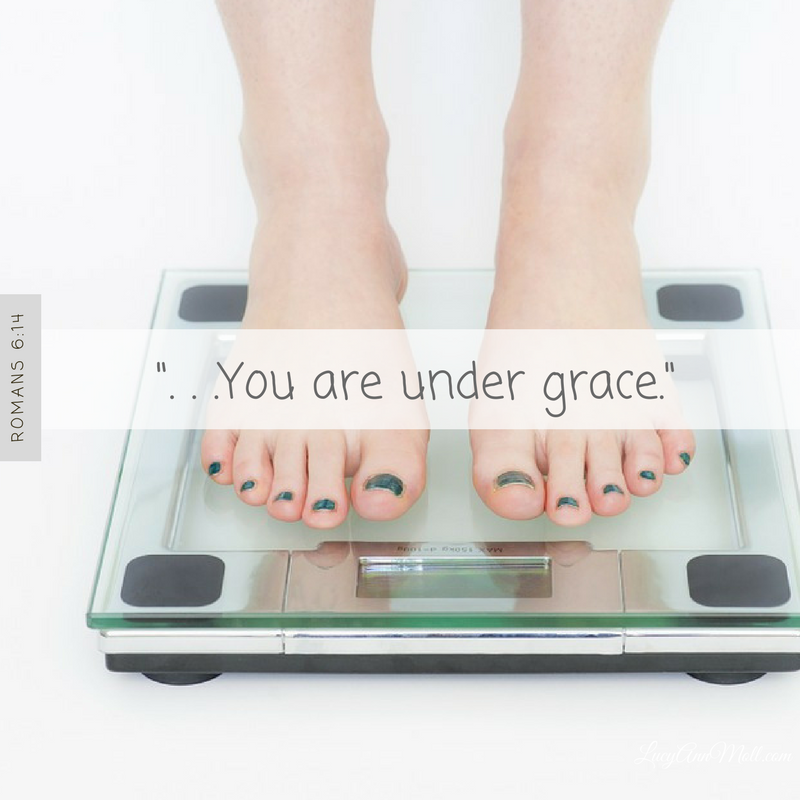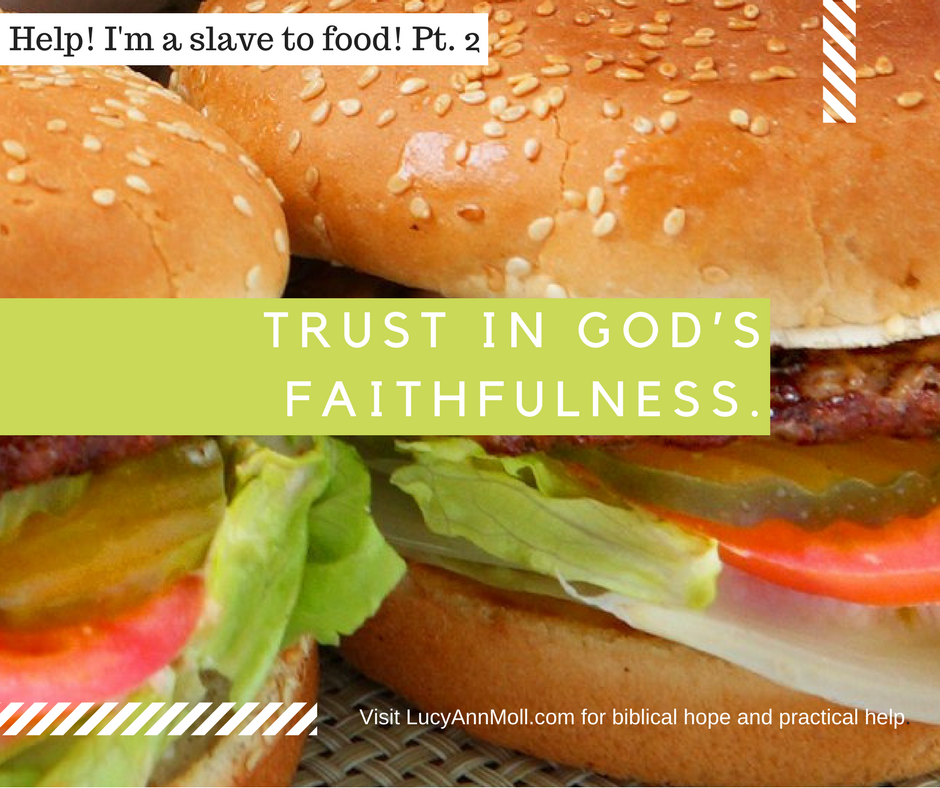
by Lucy | Jan 22, 2019 | biblical counseling, emotions, whole health wellness |
Food cravings can come on quick, right? You’re driving along singing to KLOVE or whataver, and out of nowhere food cravings strike.You may crave a Snickers or chips or a Ding Dong. Or you may crave strawberries!
And up the road a 7-Eleven beckons.
In this short article, let’s look at…
- Biological food cravings versus emotional food cravings
- A biblical solution to food cravings
Choose Your Choice
So what should you do when hit by food cravings?
A. Try your very, very best to ignore them.
B. Proceed to the 7-Eleven and get the goodies..
Well, it depends! Biological food cravings differ from emotional food cravings.
Click & Tweet!
It’s wise to fill the biological kind because your body needs what is craves. Just think of how delicious a glass of water is when you are super thirsty. So when you fulfill this type of craving, you’ll think and feel better. But fight the temptation of emotional food cravings. If you cave, you’ll feel worse, and you’ll miss out on God’s best too.
So whatever you eat or drink or whatever you do, do it all for the glory of God. 1 Corinthians 10:31
Biological or Emotional?
Here’s a simple what to tell whether your food cravings are biological or emotional
Click & Tweet!
:
When you have a biological food craving and fulfill it, you feel nourished. And it doesn’t take much food to meet such a need either. One bagel, a wedge or two of low-fat cheese, or a couple of chocolates–that’s it.
But emotional food cravings aren’t about food. Giving in is an attempt to meet a need apart from God. That’s right: An emotional eater looks for comfort in food. Sometimes it follows “I’m a loser” self-talk.
Solution to Food Cravings
The good news is by obeying and trusting God, you can have victory over food cravings.
You make this break when you begin desiring what God desires and, with God’s help, change your heart. His power helps you make good and godly food choices, straighten out your thinking on food, and practice, practice, practice. A great resource for we who mess up — and this is all of us, right? — is Love to Eat, Hate to Eat by biblical counselor Elyse Fitzpatrick.
God wants you to live life based on truth, not emotions. The truth of who he is. The truth of who you are. His truth is sure.
But our emotions go up and down like an elevator. Now emotions are fine; God gave them to us. Just be sure you don’t let them yank your around. Rather, live out truth.
7 Quick Stop-Craving Tips
Here’s truth talk on healthy eating. Yes, you’ve heard it before … except maybe the last one … but it’s the best.
- Choose water over coffee and soda pop.
- Shrink your portions by using smaller plates.
- Limit your consumption of sugar.
- Skip foods with ingredients you cannot pronounce.
- Sit down during meals.
- Eat slowly.
- Remember eating becomes sacred when it becomes worship.
Remember the Bible verse I mentioned? So whatever you eat or drink or whatever you do, do it all for the glory of God. Let it guide your choices.
And when you do, then everything — from washing dishes and sweeping floors to writing blog posts to selling — can be worship. As long as you line up your thoughts with God’s, the simplest things become sacred.
And so it is with food.
Counseling Hearts to Hope,

by Lucy | Oct 24, 2017 | biblical counseling, emotions, whole health wellness |
 BAD HEALTH? Whether you or a loved one has bad health, doubts may rush in and twirl you like carnival ride. You may ask yourself:
BAD HEALTH? Whether you or a loved one has bad health, doubts may rush in and twirl you like carnival ride. You may ask yourself:
- “What did I do to deserve this?”
- “Will I (or my friend) ever get better?”
- “Where’s God? How come he’s not helping?”
You may also experience anger, despair, and fear. Anger over waiting. Despair over pain. And fear of invasive tests, fear of bad news, even fear of God’s disfavor.
So have you faced bad health? Or, has a loved one of a friend had an awful illness? What emotions coursed through your veins?
My Bad Health Story
No physical form of bad health runs in my family. But mental problems do, namely anxiety, depression, and bipolar I disorder.
My dad had has the latter. During my childhood, he dad walked in the shadows of depression, rarely smiling. And he often spoke in monotone. In my early teens, my mom and brother convinced him to get psychiatric help at a hospital.
I had no idea how to handle my dad’s depression and occasional manic episodes.
Click & Tweet!
In fact, I figured I was the problem. But I was wrong. Can you relate? My child mind thought. . .
If only I got better grades. . .
If only I kept my room clean. . .if only.
But there was nothing I could do to help, and this made me sad. Eveyone in the family found ways to deal with the pain of a loved one with bad health. For instance, my mom devoured romance novels. Potato chips and French onion dip put pounds on her frame. And my brother managed, barely. In grade school he pulled Cs, Ds, and Fs, though his IQ topped 140. Later, he got high on weed a lot. And later still, porn became his drug of choice.
Me? I still tried on perfectionism. Miss goody two shoes, I attempted to do everything right and learned it didn’t work. Yet I kept trying. Only later, when I trusted in Christ, I found my reason to hope and heal.
But he said to me, “My grace is sufficient for you, for my power is made perfect in weakness.” Therefore I will boast all the more gladly about my weaknesses, so that Christ’s power may rest on me. 2 Corinthians 12:9
Mind-Body Connection
Bad health may have an emotional cause or physical root–or both. Heart disease, cancer, multiple sclerosis, lupus, fibromyalgia, diabetes, hypothyroidism, and other illness are physical. Doctors can indeed diagnose them through tests. But illnesses with a physical cause often take an emotional toll too.
Some types of bad health, like hypothyroidism, include the symptom of depressed mood, for example. Also, depending on the illness, there are physical changes such as bloating and hair loss. In addition, medications used to treat bad health may have nasty side effects. Soon the ill person may feel helpless and hopeless. Spiritually, she may cling to Jesus, or she may blame God for allowing the illness and wrecking her life.
What to Do
When a friend or family member faces bad health, how can you help? Well, they’re are helpful things to say and too. And there are cringe-worthy comments to avoid. Here are a few of each.
To say and do:
1. Say “I admire your courage.”
2. Ask, “Can I grocery shop, take you to the doctor, or clean the bathroom?”
3. Play an uplifting CD or make a delicious, healthy soup (see below).
To avoid:
1. “I know exactly how you feel.” You don’t.
2. Call your friend and talk a long, long time. Stick to 10 minutes unless she asks to talk longer. Add another 10 minutes tops. Use a timer.
3. Pretend nothing is wrong, like my family did.
What ideas have worked for you? Or have blown up in your face? My own personal, embarrassing piece of bad advice (that I no longer do): Telling someone how she should feel!
Click & Tweet!
May I Share a Recipe?
This first appeared in my book The Vegetarian Child (Perigee, 1997). I hope you like it. It’s make a great meal for someone in bad health. Or good health. It’s that delicious.
Creamy Broccoli Soup
A creamy soup with no cream? That’s right. The secret is pureed potatoes, which add extra nutrients to the soup without a smidgeon of fat.
2 cups chopped fresh broccoli
3 ½ cups vegetables stock or 3½ cups water with 1 vegetable bouillon cube
4 potatoes, peeled and cubed
½ onion, chopped
½ to 1 tablespoon fresh cilantro
Salt and freshly ground black pepper to taste
Place all the ingredients except the salt and pepper and ½ cup vegetable stock or water in a large pot. Bring to a boil, cover, and cook over medium heat until tender, about 20 minutes. Set aside ½ cup broccoli to use as garnish.
Puree the remaining contents of the pot, a batch at a time, in a blender or food processor. Be sure to fill the blender or food processor no more than 2/3 full. Return the pureed soup to the pot. Add the remaining vegetable stock or water, season with the salt and pepper, and simmer 5 minutes. Pour the soup into individual bowls and top each one with the reserved broccoli garnish. Serve warm.
Serves 6. Per serving: 91 cal; 3g prot; 0.2g fat; 21g carb; 0 chol; 368mg sod; 2.7g fiber
Counseling Hearts to Hope (and healing),

by Lucy | Oct 3, 2017 | biblical counseling, biblical counseling, whole health wellness |
 DIETING: Millions of women are on a diet now. Is dieting wrong in God’s eyes? Is it (gulp) a sin?
DIETING: Millions of women are on a diet now. Is dieting wrong in God’s eyes? Is it (gulp) a sin?
Diets. Gotta love them, gotta hate them.
We women love them because losing weight helps us look better and feel energetic. We hate them because we may feel deprived, grouchy, and fearful that we’ll gain back the pounds we worked hard to lose.
I have a crazy Weight Watchers story. It begins what I was age 10. You can read part of my crazy story here in the intro of my eBook, Fit for Life.
Back to the BIG question:
So Is Dieting Sinful?
The quick answer: no. In itself dieting isn’t bad. In fact, caring for yourself by eating right is good. But dieting can turn bad. It depends on your attitude. What’s your attitude regarding food and self image? Do you hate how your jeans fit? Do you call yourself awful names if you go off your diet?
If you fear that eating certain favorite treats like ice cream, chips or cookies will prompt you to binge or if you believe that eating your favorite treat is “wrong” (even if the Bible doesn’t teach that it is), then you must not eat it, says Elyse Fitzpatrick, a leading biblical counselor and author of several books including Love to Eat, Hate to Eat.
The bible says that if you compromise your conscience, you sin.
He who doubts is condemned if he eats, because his eating is not from faith; and whatever is not from faith is sin. (Romans 14:23)
This passage primarily speaks to food offered to idols (which was a problem when the apostle Paul wrote this epistle), yet the biblical principle holds true: anything that compromises your faith is sin, including faithless eating.
The upshot: If you believe dieting or cheating on your diet is a sin, then it is sin for you. If not, then feel free to choose a weight-loss plan.
Listen to Paul’s words on sin and grace.
For sin shall no longer be your master, because you are not under the law, but under grace. (Romans 6:14)
If you choose to lose weight by dieting, select one focused on lifestyle changes and teaches healthy habits to keep you Fit for Life.
What About Gluttony?
 Derived from the Latin gluttire meaning to gulp down or swallow, “gluttony” means over-indulgence of food or drink to the point of extravagance or waste, gluttony has a spot on the infamous list of the seven deadly sins. While I’ve never heard a sermon on gluttony, the Bible speaks against it. (Check out Proverbs 23:20,21.)
Derived from the Latin gluttire meaning to gulp down or swallow, “gluttony” means over-indulgence of food or drink to the point of extravagance or waste, gluttony has a spot on the infamous list of the seven deadly sins. While I’ve never heard a sermon on gluttony, the Bible speaks against it. (Check out Proverbs 23:20,21.)
In a strange twist, under-indulgence of food is also gluttonous because it is an extreme use of food. For some, the problem is anorexia nervosa, which troubled a food disordered counselee, who eventually found healing as she determined to put God first and to bring glory to him in everything she did. We also kept in regular contact with her medical doctor and nutritionist.
She learned to enjoy eating food, a gift of God. Indeed. Paul declared,
For everything God created is good, and nothing is to be rejected if it is received with thanksgiving, because it is consecrated by the word of God and prayer. (1 Timothy 4:4,5)
4 Quick Self-Care Food Tips
1. Cut out or reduce sugary drinks like soda. (When my husband corked the a while back, he lost 15 pounds in three months and feels more energetic, especially in the afternoon.)
2. Drink a glass of water before a meal or when you feel hungry between meals. Drinking water makes you feel fuller, helping you to reduce portions easily. Hycration also helps you think better.
3. Eat colorfully. Have lots of veggies and fruit on hand, washed and ready to eat. You’re less likely to crunch a cookie when you’ve set out baby carrots, snap peas, bananas, and apples.
4. Decide NOT to diet. A diet is an eating plan you go on and off, typically regaining the weight you lost. Instead, listen to advice from MayoClinic.com:
Combining a healthier diet and more activity is the best way to lose weight and keep it off for the long term. Take your weight loss and weight maintenance one day at a time and surround yourself with supportive resources to help ensure your success.
This is exactly the approach of my ebook Fit for Life, with a strong biblical emphasis. God created you to shine.
“Whether, then, you eat or drink or whatever you do, do all to the glory of God.” 1 Corinthians 10:31
Counseling hope to your precious heart,

by Lucy | Sep 7, 2017 | biblical counseling, emotions, whole health wellness
Overeating is a life-dominating sin. It has a strong influence over your life, affecting your mind, your body, your spirit, your heart, your emotions, your relationships, and even your finances. The sin of overeating is practiced repeatedly so that it becomes a habitual lifestyle and almost second nature, a continuous action that controls your life.
Let’s look at nine characteristics of the life-dominating sin of overeating.
Characteristics of Life-Dominating Sin
1. You have repeatedly tried to stop overeating.
You’ve tried every diet known to man, but failed to stop habitually overeating. The root of your problem is that you are not taking this sin seriously.
2. You blame others or circumstances for your failure.
The world may teach you to blame your mother for your sinful eating habits because, when you were a child, she forced you to ‘clean your plate’ at every meal. You may blame overeating on your genetic makeup. Also you may blame your diet plan: “It did not work for me. It is too strict.”
Perhaps you even blame your sin on God because he will not change your circumstances, your cravings, and so on. You completely disregard what the apostle Paul says in Romans 14:12:
So then each one of us will give an account of himself to God.
3. You deny that overeating is a sin.
You believe what the world tells you about your overeating problem: that your problem is really low self-esteem, or that you actually have a disease. In addition, you refuse to accept that your actions are sinful and do not glorify God. And so you call it a weakness instead of a sin.
4. You convince yourself that you are not enslaved to overeating and ‘can stop at any time.’
You must admit that you are in bondage to the sin of overeating. Jesus teaches, everyone who commits sin is the slave of sin (John 8:34). Chance are, you believe that you are in control of your eating habits every time you start a new diet plan or workout program.
But you are deceived into believing that this plan will deliver you. A life-dominating sin requires the work of the Holy Spirit in order for it to be put to death in the believer.
5. Any pleasure from overeating is short-lived, while the harm is considerable and long-Term.
You feel as though you have no control over your cravings. And so you give in to the temptation to eat repeatedly. Then you see your body weight increasing and feel your clothes tightening.
As a result, you get depressed because you don’t like the way you look. Your blood pressure is getting dangerously high, and your knees hurt when you try to climb the stairs to your apartment. Nevertheless, you find yourself stuffing your face again with massive amounts of food and not receiving the relief you are seeking.
6. You overeat when no one is watching.
When overeating controls you, you will seek to hide your outward behavior by doing it in secret….Hiding your sin will only lead you into deeper bondage. You must realize that there is power in confession.
James 5:16 states,
Therefore, confess your sins to one another, and pray for one another so that you may be healed. The effective prayer of a righteous man can accomplish much.
7. You know that overeating obscures the testimony of Jesus Christ in your life and Is a stumbling block to others.
To commit sin and know that it is damaging the testimony of Jesus Christ can lead you more deeply into slavery. You must know that your sinful actions are affecting everyone around you: your husband, children, coworkers, unsaved relatives, and friends.
You cannot admonish and encourage others in their walk with Christ when you are purposefully committing sin in their presence. They see your helpless struggle with overeating and may deny the power of Christ in their own lives.
8. You Know that God’s Word Tells You to Stop Sinning, and that God Can Release You from this Bondage.
Pride and rebellion are at the heart of your problem. Perhaps you have been a Christian for a long time and you know that God is not pleased with your gluttonous behavior. But you continue to ignore God’s command to glorify him when you eat (1 Corinthians 10:31). You refuse to trust in God’s faithfulness and accept his way of escape (1 Corinthians 10:13).
9. You realize that your deeds (thoughts, words, actions) do not conform to the character of Christ.
Your conscience accuses you of your sin. Plus, your behavior doesn’t conform to the character of Christ. Without telling a bold-faced lie, you cannot say that your gluttonous behavior is Christlike. You know in your heart that your behavior is not pleasing to the Lord. You know that your desire is to please yourself.”
Get HELP! I’m a Slave to Food in print copy and/or Kindle format.
RESOURCE: Looking for a whole-hearted, comprehensive ebook to be Fit for Life. Get it now.
Sharing Hope with Your Heart,

by Lucy | Sep 5, 2017 | biblical counseling, emotions, whole health wellness
God declares overeating to be a sin: ‘For the heavy drinker and the glutton will come to poverty’ (Proverbs 23:21).
So begins the second chapter of biblical counselor Shannon Kay McCoy’s very helpful mini-book HELP! I’m a Slave to Food.
Then McCoy defines sin. These definitions include–
- whatever is not from faith is sin (Romans 14:23).
- therefore, to one who knows the right thing to do and does not do it, to him it is sin (James 4:17).
- all unrighteousness is sin (1 John 5:17).
- sin is lawlessness (1 John 3:4).
These descriptions view sin as the act of the will. Sin is choosing to act in opposition to God’s Word.
Sin of Overeating?
McCoy continues: “Perhaps you don’t believe that overeating is a sin. Many of us have been brainwashed by magazine articles, television talk shows, and reality shows that tell us that food is the problem: you are simply eating the wrong things in the wrong way.”
Often Christians view overeating as a diet problem rather than a sin problem.
Click & Tweet!
But overeating does n
ot seem serious. We often treat it as one of those ‘little sins’ that are acceptable in the church.
You don’t hear sermons or read books on the sin of overeating, do you? Your focus is more on getting treatment for your problem of overeating than facing up to your personal responsibility of repentance and obedience.
As McCoy pointed out, overeating is failing to do the right thing. It is unrighteousness and lawlessness.
Description of a Food Struggle
A woman McCoy spoke with describes her struggle:
My eating was out of control. I ate solely to satisfy whatever craving I was having at the time. As a result, my health was suffering and I was not honoring God with my life and body He had given me. I was for the first time confronted with the fact that the way that I was eating was sinful. I knew that my eating was ‘not good,’ but I never considered that my eating was sin.
In her mini-book, Shannon transparently identifies with her readers by acknowledging that overeating once dominated her life. Then she shares the life-changing counsel from the Scriptures, which changed her life, beginning with admitting the seriousness of her sin problem.
Overeating Is Not an Addiction
Some overeaters label themselves “food addicts,” believing they are addicted to food. However, addiction is not a biblical term. The world uses this terminology to describe the behavior of someone who is controlled by a substance.
The Merriam-Webster dictionary defines addiction in this way: “To devote or surrender (oneself) to something habitually or obsessively.” But the danger in labeling overeating as “addiction” is that it undermines the personal conviction of sin. If the problem is not sin, then you will look for solutions in a system of theories, not in the person of Jesus Christ.
Overeating Is Idolatry
The biblical term for “addiction” is “idolatry.” The sin of overeating is idolatry. And idolatry is worship and devotion to creation rather than worship and devotion to the Creator God.
You worship your stomach and appetites by indulging in food. In fact, you desire the created food more than your Creator. The problem is not necessarily the food you consume; it is the worship of your heart. But before you can be set free, you must acknowledge your idol, denounce it, repent, and give your heart and devotion to him. Your greatest hope is in turning from your false gods and surrendering your life to Jesus, who forgives your sins and frees you from the sin of overeating.
God’s Grace Empowers Us to Change
Romans 6:12-14 both exhorts us to repent of the sin of overeating and gives us hope on God’s power to change us:
Therefore do not let sin reign in your mortal body so that you obey its lusts, and do not go on presenting the members of your body to sin as instruments of unrighteousness; but present yourselves to God as those alive from the dead, and your members as instruments of righteousness to God. For sin shall not be master over you, for you are not under law but under grace.
In the remainder of her mini-book, McCoy teaches us how to conquer the sin of overeating by God’s gracious empowerment for disciplined living.
Get HELP! I’m a Slave to Food in print copy and/or Kindle format.
RESOURCE: Looking for a whole-hearted, comprehensive ebook to be Fit for Life. Get it now.
Sharing Hope with Your Heart,





 BAD HEALTH? Whether you or a loved one has bad health, doubts may rush in and twirl you like carnival ride.
BAD HEALTH? Whether you or a loved one has bad health, doubts may rush in and twirl you like carnival ride.  DIETING: Millions of women are on a diet now. Is dieting wrong in God’s eyes? Is it (gulp) a sin?
DIETING: Millions of women are on a diet now. Is dieting wrong in God’s eyes? Is it (gulp) a sin? Did you know overeating can dominate your life? This is part 2 of a two-part series. See Part 1
Did you know overeating can dominate your life? This is part 2 of a two-part series. See Part 1 
 Food is a gift from God, right? But for some people, overeating is a. . .sin.
Food is a gift from God, right? But for some people, overeating is a. . .sin.
